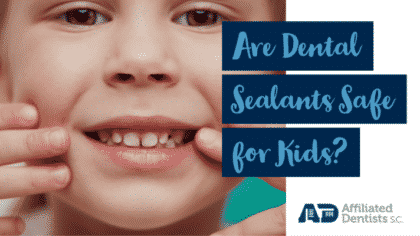All About Wisdom Teeth
We’ve all heard about people having their wisdom teeth removed, but what are they? Some people have to have them extracted right after they begin growing in. Others wait until there is pain or a complication, and a few don’t have them extracted at all. Why is this? What makes these particular teeth so special?
What Are Wisdom Teeth?
Simply put, your wisdom teeth are another set of molars. Also called “third molars,” these teeth start growing in the far back of the mouth between the ages of 16 and 25. “Sometimes these teeth can be a valuable asset to the mouth when healthy and properly aligned, but more often, they are misaligned and require removal.” –Dental Health and Wisdom Teeth, WebMD.
Why Are They Called “Wisdom Teeth?”
In the late seventeenth century, people referred to these teeth as “Teeth of Wisdom”. Long ago, it was believed that the extra set of molars were because the diets of humans ate really course, hard food – like nuts and roots – and teeth were ground down much faster. Anthropologists feel that “required more chewing power and resulted in excessive wear of the teeth.” –Why Do We Have Wisdom Teeth?, Science Line.
In modern times, with softer types of food and better tools to eat, people now refer to wisdom teeth simply as an extra set of molars that start to grow when a person began their transition from childhood to adulthood.

Why Do Wisdom Teeth Need to be Taken Out?
As they are the very last teeth to come in, wisdom teeth often cause complications with the permanent teeth that are already established in your mouth. The main complications that occur are:
- crowding
- impaction
- partial eruption
Crowding means your teeth get pushed together, causing them to become crooked and misaligned. Click here for an example. If you were told your wisdom teeth are impacted, it means they didn’t have any more room to grow while they are still under your gums. In this case, they cannot erupt through your gums properly as the rest of your teeth, and can even start to grow sideways underneath your gum line, pushing on your other molars. In other cases, wisdom teeth can become only partially erupted, meaning only a part of them have come through your gums. When this occurs, a thin membrane can be stretched over the tooth surface which forms a soft tissue lid or flap, making it almost impossible to keep clean. Other, more serious issues can occur as well. “Some people develop fluid-filled growths called cysts. These can cause permanent damage to bone, teeth, and nerves. In rare cases, other tumors may develop as well.” –Should You Have Your Wisdom Teeth Removed?, Colgate.
With all this in mind, your dentist will often recommend the extraction of your wisdom teeth. Even if you are not in pain or if there are no obvious complications after the eruption of the wisdom teeth, extraction it is still suggested. This is mainly because wisdom teeth hold no necessity and can be very difficult to keep clean and healthy (as they are so far back in the mouth) and might cause issues later on in life.
What is the Best Age to Extract Your Wisdom Teeth?
Honestly, there is no best age. Some people wait to see if they have any complications, but like all other oral health concerns, it is important to follow the recommendation of your dentist, who will suggest the extraction when it’s right. Most of the time, it is better to have your wisdom teeth removal done at a young age, shortly after eruption, before the roots can grow. This helps prevent complications such as curved roots, which make the surgery as well as the recovery more difficult.
Can Affiliated Dentists Extract My Wisdom Teeth?
A lot of care goes into the proper extraction of a third molar. Our dentists can do a certain amount of very simple extractions, usually of baby teeth and even some broken or fairly decayed teeth. However, the extraction of wisdom teeth require more preparation, equipment and attention than what can properly be given at a general dental office. Wisdom teeth, being so far back in the jaw, reside very close to nerves and the sinuses. So even if there are no complications with the tooth being impacted, it’s not a simple extraction. If it is suggested to you that you need your wisdom teeth removed, you will be given a referral to one of the amazing oral surgeons in Madison that we trust. You will be in excellent hands.

What Are the Complications and Side Effects of Extracting Wisdom Teeth?
Though extracting wisdom teeth is a routine procedure for oral surgeons, as with any surgical procedure, complications can arise and there is always a certain amount of inherent risk in oral surgery.
Common Complications
Dry Sockets
The most common complication after any tooth extraction is a dry socket. Dry sockets are a painful inflammation that develop around alveolar bone. It is not an infection. It occurs when the protective blood clot at the extraction site is dislodged, falls out prematurely or fails to form entirely. In most cases, dry sockets happen when the patient disregards proper home care instructions given by the oral surgeon.
After you have your wisdom teeth extracted, there are many things you must avoid to prevent complications. Changing the pressure inside one’s mouth by smoking, blowing one’s nose, drinking from a straw and spitting can cause dry sockets. Sneezing or coughing can also cause dry sockets, but are not really under the control of the patient. If a patient suspects dry sockets are an issue, they should contact the oral surgeon immediately.
Nerve Damage
Nerve Damage is another complication that can arise from the extraction of wisdom teeth. Such injuries can occur while lifting the tooth or from inadvertent damage with the surgical drill. This type of injury is rare and usually temporary.
Damage to Surrounding Teeth
As with any tooth extractions (not just of wisdom teeth), damage can occur to neighboring teeth during the procedure, especially to weak teeth, or ones with large fillings.
Common Side Effects
Swollen Gums
One should never be surprised to distressed when one notices a slight swelling of the gums, as this is a positive sign of healing (even though it may be painful).
Bleeding/Oozing
Bleeding and oozing from the extraction site can be gross, but should be expected. This symptom can last up to 3 days. But remember, do not rinse the mouth during this period of bleeding. This is a natural part of the healing process that can be hindered if you rinse out the mouth.
Jaw Pain
it is common to experience jaw pain after having your wisdom teeth extracted, and it might even be difficult for you to open your jaw all the way for a couple days. This is mainly because during the entire procedure, you had your mouth propped wide open so the surgeon could reach into your mouth. A soft diet is typically recommended for a few days until everything is healed.
Of course, it is extremely important to perfectly follow all home care instructions given to you by your surgeon.
Even though wisdom teeth don’t provide any extra insight or intelligence, knowing more about them and why they are extracted can help you be more prepared if your dentist suggests their extraction at your next appointment.
Remember, we at Affiliated Dentists will always refer you to an oral surgeon we trust, who will take excellent care of you before, after, and during your surgery.
“Dr. Porter suggested the removal of my wisdom teeth at age 35. I hadn’t had any complications with them up until age 30 when decay was starting to attack that location of my mouth, which is very hard to brush. I was really surprised at how easy and painless the removal was at a local oral surgeon’s office. I’m so glad I had them removed at Dr. Porter’s suggested time.” -Lisa (actual patient)



